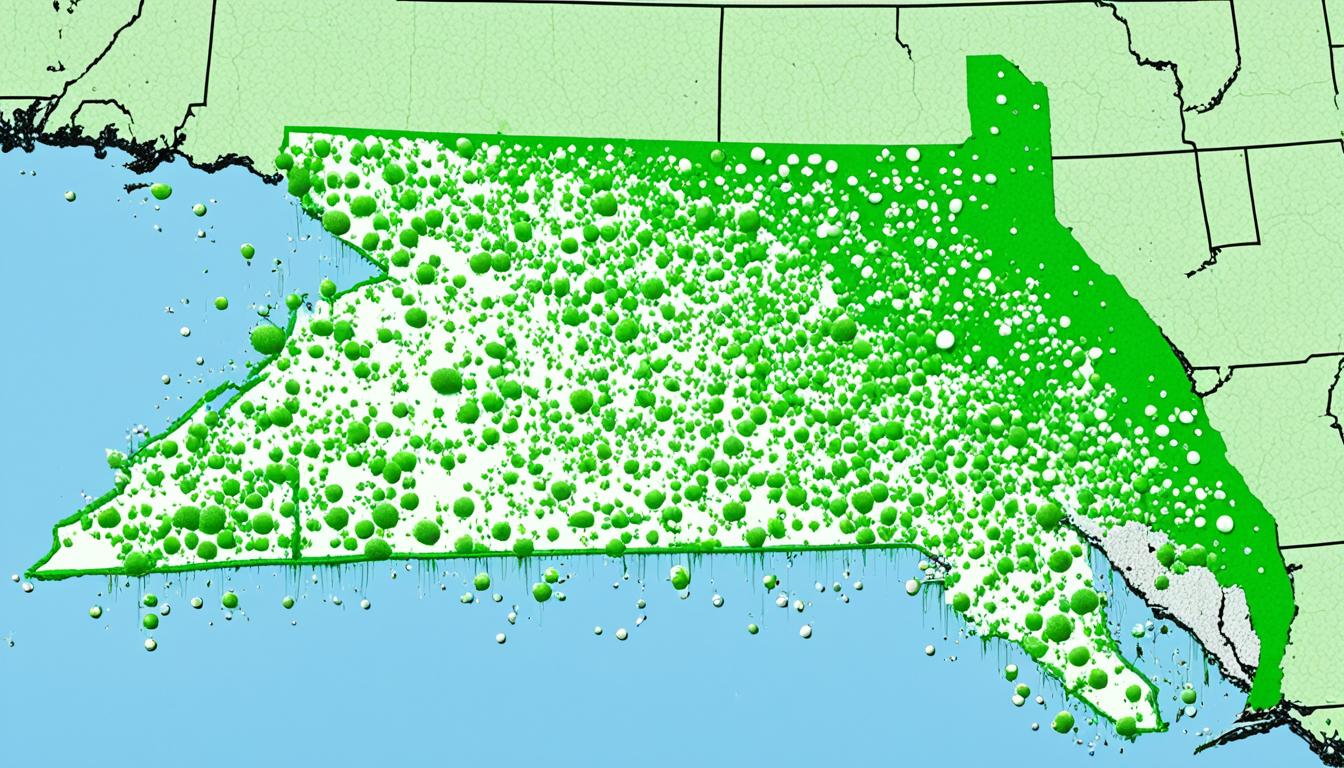
Florida Mold Assessment License Reciprocity Guide
Welcome to our comprehensive guide on Florida mold assessment license reciprocity. If you are a certified mold assessor looking to transfer your license to Florida or obtain a mold assessment license in the state, this guide is for you. We will provide all the information you need to navigate the reciprocity process and meet the necessary requirements.
Florida is known for its warm and humid climate, which makes it susceptible to mold growth. As a result, there is a high demand for licensed mold assessors who can assess and identify mold-related issues in residential and commercial properties. Whether you are looking to expand your business to Florida or start a new career in the mold assessment field, understanding the license reciprocity process is essential.
Key Takeaways:
- Florida offers mold assessment license reciprocity for certified mold assessors looking to transfer their license or obtain a license in the state.
- The process of transferring your mold assessment license to Florida involves submitting the required documentation and meeting any additional requirements set by the state.
- In order to obtain a mold assessment license in Florida, you must meet specific educational and training requirements, as well as pass the state’s licensure examination.
- By following this guide, you will have a clear understanding of the steps involved in the license reciprocity process and be well-prepared to obtain your mold assessment license in Florida.
- It is important to stay updated on the latest regulations and requirements in Florida regarding mold assessment to ensure compliance with state laws.
Transferring Your Mold Assessment License to Florida
Transferring your mold assessment license to Florida is a straightforward process that requires careful attention to documentation and information. By following the necessary steps and meeting the requirements, you can ensure a seamless transfer of your certification.
Firstly, it is essential to gather all the required documents for the transfer. These include but may not be limited to:
- Proof of your existing mold assessment license
- Completion certificates for any relevant training or educational programs
- Proof of work experience in the mold assessment field
- Identification documents such as a valid driver’s license or passport
Once you have collected the necessary documents, you will need to submit them to the appropriate regulatory body in Florida. This is typically the Department of Business and Professional Regulation (DBPR). It is essential to carefully follow their guidelines and instructions to ensure a smooth certification transfer.
In addition to submitting the required documents, you may also need to complete any additional steps specified by the regulatory body. These may include:
- Passing a background check
- Providing proof of liability insurance
- Taking a state-specific exam
By fulfilling these requirements and completing the necessary steps, you can successfully transfer your mold assessment license to Florida. It is crucial to stay updated with any changes in the regulations and requirements for a smooth certification transfer process.
Example Table:
| Documents Required for Transfer | Additional Steps |
|---|---|
| Proof of existing mold assessment license | Passing a background check |
| Completion certificates for relevant training | Providing proof of liability insurance |
| Proof of work experience | Taking a state-specific exam |
| Identification documents |
Transferring your mold assessment license to Florida requires careful attention to detail and adherence to the regulations set by the regulatory body. By following the necessary steps, submitting the required documents, and completing any additional requirements, you can ensure a successful transfer and continue your mold assessment career in Florida.
Requirements for Obtaining a Mold Assessment License in Florida
Obtaining a mold assessment license in Florida requires meeting specific requirements set by the state. These requirements encompass educational qualifications, training prerequisites, and other criteria that must be fulfilled to become a certified mold assessor in the state.
Educational Qualifications:
One of the primary requirements for obtaining a mold assessment license in Florida is completing the necessary educational qualifications. You must possess a high school diploma or its equivalent to be eligible for consideration. Additionally, having a background in fields such as environmental sciences or construction-related disciplines can be advantageous for your application.
Training Requirements:
Florida also mandates that aspiring mold assessors undergo specific training programs before applying for a license. This training is designed to equip individuals with the knowledge and skills required to perform accurate mold assessments. Training courses approved by the Department of Business and Professional Regulation (DBPR) must be completed to fulfill this requirement.
Other Prerequisites:
In addition to educational qualifications and training requirements, there are other prerequisites you must fulfill to obtain a mold assessment license in Florida. These may include passing a state-approved examination, submitting an application with the appropriate fees, and providing any supporting documentation requested by the DBPR.
Continuing Education:
Once you have obtained your mold assessment license in Florida, it is essential to stay up to date with changes and advancements in the field. The state requires mold assessors to engage in continuing education to maintain their licenses. This ensures that professionals remain knowledgeable about current practices and emerging trends in mold assessment.
| Requirements | Description |
|---|---|
| Educational Qualifications | Completion of high school diploma or equivalent |
| Training Requirements | Successful completion of DBPR-approved training courses |
| Other Prerequisites | Passing an approved examination, submitting application and fees, providing required documentation |
Conclusion
In conclusion, this guide has provided a comprehensive overview of Florida mold assessment license reciprocity. We have discussed the process of transferring your mold assessment license to Florida, the requirements for obtaining a license in the state, and the steps involved in achieving certification. By following this guide, you will be well-equipped to navigate the reciprocity process and obtain your mold assessment license in Florida.




